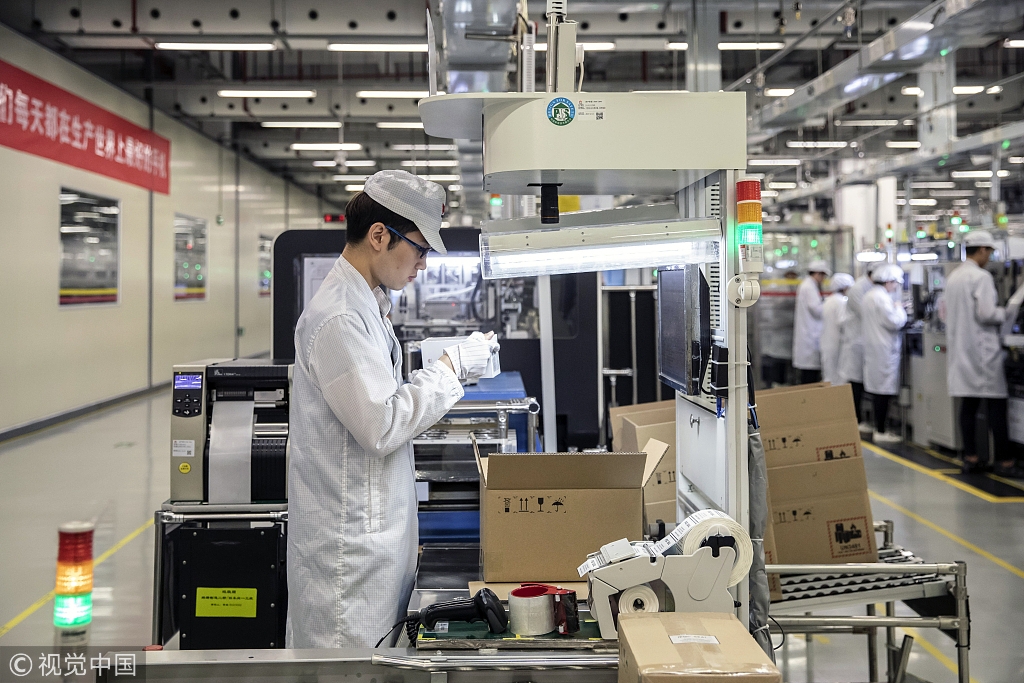Chancellor Angela Merkel signalled she is loath to cave in to US pressure to bar Huawei Technologies, saying she will not single out individual vendors as Germany toughens its security requirements for mobile networks.
“There are two things I don’t believe in,” Merkel said in an onstage discussion on Tuesday at the Global Solutions summit in Berlin. “First, to discuss these very sensitive security questions publicly, and second, to exclude a company simply because it’s from a certain country.’’
The United States has warned it could scale back the sharing of sensitive information with Berlin if it does not exclude hardware made by Huawei from its 5G infrastructure, arguing that Chinese equipment could help Beijing spy on Western companies and governments.
European carriers, however, have warned governments that sidelining Huawei would delay fifth-generation networks by years. The Chinese telecoms giant, which has repeatedly denied US allegations that it could enable Chinese state-ordered spying, is deeply embedded in Germany’s phone networks, so restrictions would be more disruptive than in some other countries.
Germany on Tuesday started selling 5G-ready airwaves to carriers including Deutsche Telekom, Vodafone Group and Telefonica. Huawei is not one of the bidders but provides the hopefuls with essential hardware such as antennas and routers.
The roll-out is critical as Europe’s biggest economy tries to reduce its dependence on old-school engineering. The country lags behind the likes of Qatar, Albania and Moldova when it comes to mobile internet speeds, a handicap in the transition to a data-based economy. Merkel’s government has promised to create a “world-class” digital infrastructure and end the notorious dead zones that dot the countryside.
Germany should not be naive when it comes to the security of its networks, Merkel said, adding that a joint European solution to the Huawei issue “would be desirable”.
5G technology is harder to police, and that is why Germany is tightening requirements for companies that want to supply the technology – whether they are from China or elsewhere, Merkel said.
“So far, lots of countries have used Huawei technology,” she said at the conference. “That’s why the federal government has not taken the approach of simply ruling out any contractor or stakeholder, but we have set standards for those bidding for 5G technology.
“We will also write these standards legally into our telecommunications laws … We will give everyone a chance, but shouldn’t be naive; instead we see that there are very different laws in China.”
“Of course we’re in a systemic competition with China,’’ Merkel said in a separate speech at the same event. “But the answer can’t be that we fight those who are economically strong, we must stand up for fair, reciprocal rules and not give up on multilateralism.’’
Jochen Homann, chairman of the German Federal Network Agency (BNA), said excluding Huawei’s equipment would present significant problems for the auction winners.
“Huawei is an important supplier, already present in our previous networks – it will be difficult to do without such companies and this is not at all what we want,” Homann told German public broadcaster ARD.
The US has accused Beijing of using Huawei’s 5G network gear as a Trojan horse, forcing operators to transmit data to the government, but Washington has not provided evidence to support its suspicions.
Huawei has strenuously denied allegations its equipment could be used for espionage, while Chinese Foreign Minister Wang Yi on Monday lashed out at what he called “abnormal, immoral” attacks on the Chinese firm.
US-led attempts to encourage other nations to ban Huawei equipment from their telecoms infrastructure suffered a setback when Merkel’s government decided against imposing company-specific restrictions on the 5G auction.
With other nations across the EU also grappling with the same issue, Jyrki Katainen, vice-president of the European Commission, said Brussels would make recommendations on security in digital networks.
But he told business newspaper Handelsblatt that it was “unlikely that we will name one or two companies that should be excluded”.
According to media reports, the US ambassador to Germany last week warned in a letter to Germany’s economy minister that Washington could review intelligence cooperation unless Berlin agreed to a Huawei ban.
The threat escalated when Nato’s Supreme Allied Commander in Europe, US General Curtis Scaparrotti, warned Germany that Nato forces would cut communications if Berlin were to work with Huawei.
Scaparrotti said the US military was concerned about the risk of Germany’s telecommunications being compromised as “particularly with 5G, the bandwidth capability and ability to pull data is incredible”.
“If it also is inside of their defence communications, then we’re not going to communicate with them. And for the military that would be a problem.”
Germany’s Federal Intelligence Service (BND) shares some of the US fears, according to a report.
BND security experts have asked the government to take China’s overall strategy into account, including a law compelling cooperation in security matters, according to Der Spiegel magazine.

